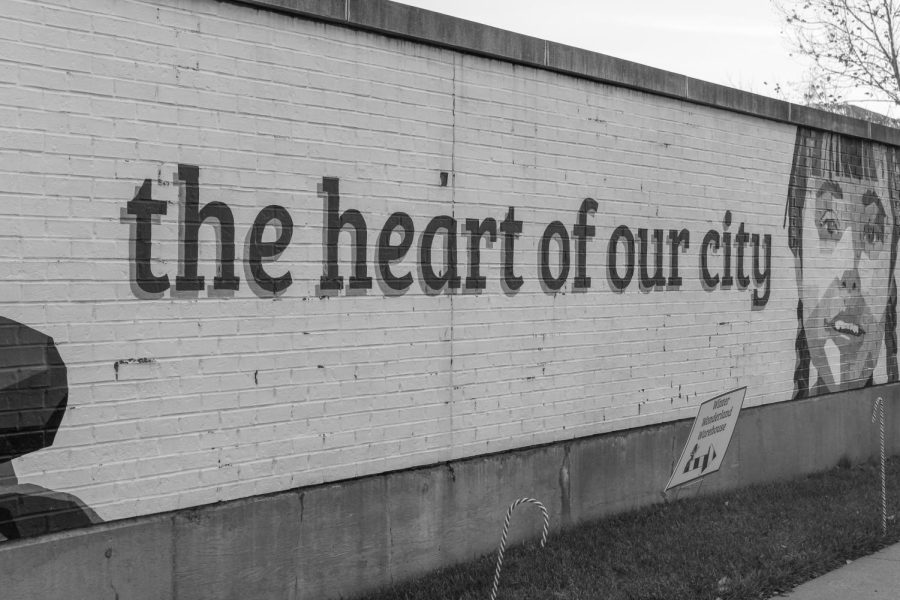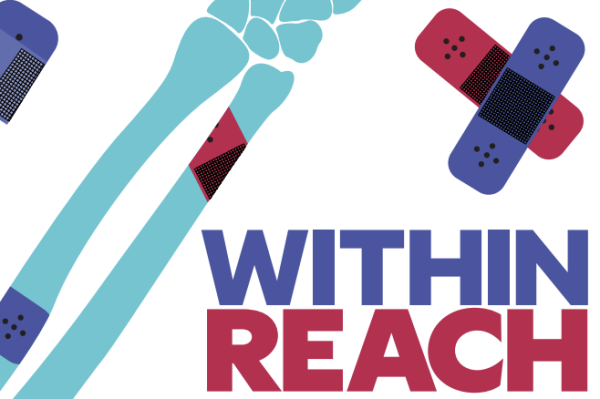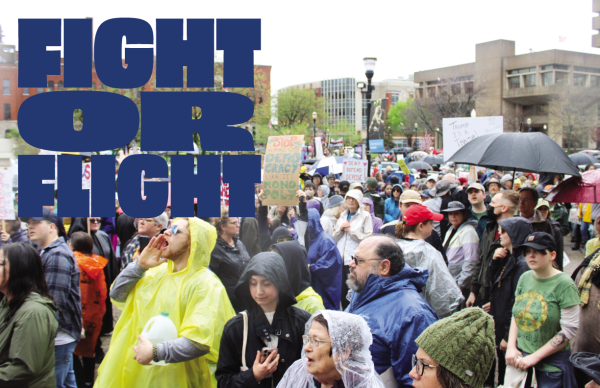Growing up. Aging out.
At eighteen, those in Kentucky’s foster care system face a challenge completely on their own.
Deonte Green’s alarm goes off every morning at 5:00 AM, marking the start of his morning routine — take a shower, walk the dog, get ready for school, catch the bus at 7:08. After two classes, he leaves school at 11:40, works a shift at Penn Station, goes home, walks the dog, and does his evening chores.
By all accounts, Green is a normal senior in high school, excitedly approaching graduation and ready to start his future as an independent adult. Typically, the months following graduation will be a time of learning and experiencing the world apart from the families students have grown up with. But for Green, this won’t be his first time on his own without familial guidance.
What isn’t obvious at first glance is that Green grew up in foster care and has essentially been on his own since he was a toddler. Not only is he approaching graduation, but after recently aging out of the foster care system at 18, he’s faced with much bigger obstacles than his peers could imagine.
For older youth in the foster care system, “aging out,” or turning 18 while still in foster care, comes with mixed emotions, some excited, most anxious. Aging out signifies the period in which youth in foster care leave the system without an adoptive family. Green has been moved from foster home to foster home, trying to find the right fit, but the older he got, the fewer families there were willing to take him in. Soon enough, Green was approaching his 18th birthday.
“I was anxious, like do I wanna stay in my home or do I wanna live on my own?” Green said.
Green eventually decided to leave the residential foster care facility where he currently lived and get an apartment.
“When I aged out, I was nervous at first because I didn’t know what to expect. They told me that when you age out you get a lot of benefits like free college,” Green explained.
While foster youth have resources available to them, including college scholarships and career training, they are often left in the dark to learn basic tasks, unprepared for the everyday challenges that they’ll face as adults.
“I don’t know how to cook. I don’t know how to drive. I didn’t know how to do things a normal 18-year-old should know how to do,” Green expressed the anxiety that is undoubtedly felt by many foster youth in his situation.
Though his everyday life looks like any other, the struggles of his past and uncertainties of his future are vastly different from the typical teen.
The reality is that Green is far from alone in his experience. In Kentucky, there are more than 9,000 children in foster care, and as these children get older, their chances of being adopted decrease. As they approach age 18, they are each forced to face the challenges ahead of them, this time without many of the supports they grew up with.
Mylantha Williams was one of the many foster care children on the brink of aging out. Without an adoptive family to support her, she faced entering the real world with few connections or aspirations for the future.
“I wasn’t going to college right out of high school. Back then, it was for smart kids. They didn’t push it like they do now,” she said.
Without knowledge of the opportunities for higher education, Williams had never planned on going to college. After she aged out, she got a sustainable job at a factory that paid her rent. One day, she decided to go back to her old high school to visit and ran into her friend’s mom. They started catching up, and when Williams mentioned she never went to college and instead went straight to working without a degree, her friend’s mom was perplexed.
“She was like, ‘Well why didn’t you go to college?’ and I was like, ‘What am I going to college for?’” Williams said.
Her friend’s mom continued to push Williams into at least considering college, mentioning all the opportunities available for her out there.
“If you don’t have folks building you up and letting you know that you’re okay, that you’re worthy, that you can do these things, it’s really hard to accept someone saying that you can do this,” Williams said.
Through support from her friends and foster family, Williams pushed herself to pursue higher education and a more fulfilling career. A 2011 study done by Chapin Hall, a policy research institution at the University of Chicago, showed that only three to four percent of youth who age out of foster care will earn a college degree, and Williams defied that statistic. Now, she is an elementary school mental health counselor, working with foster care children that need someone to push them just as much as Williams needed her friend’s mom to push her.
“I’ve talked to folks getting ready to age out before, and the biggest thing is finding your family and your mentorship,” Williams said. “Those people always have your back.”
While Williams was eventually able to find success beyond her factory job, the reality is different for the majority of youth who age out of foster care. According to the U.S. National Library of Health, because of their lack of support after aging out, two in five adults who leave the system will become homeless, and according to the National Foster Youth Institute, only half will be employed by age 24. Because of a lack of access to healthcare and contraceptives, 55% of women who age out had been pregnant by 19.
These statistics make it clear that when youth age out of the foster care system, they are in need of support as much as any other kid is. However, finding support for them is, like many other things, much harder. Anissa Lanier, a JCPS foster care liaison and social worker, has dedicated her career to providing support to these youth and setting them up for better futures before they even age out.
While Lanier doesn’t work one-on-one with foster care youth, the important work she does impacts the community in many ways and creates more positive outcomes for the kids themselves. “Since I don’t have a direct connection with the student, I feel like I’m fighting for this person who I don’t know, but I know that it’s worth it because I hear the other side of the story,” she said.
On any given day, Lanier helps support foster care youth in many critical ways, including helping youth experiencing housing instability and advocating for the foster care community as a whole.
“Sometimes my voice is very small, like a whisper. I feel like when I’m joining with my partners and other people in the community, it makes my whisper more of a yell,” Lanier said.
Perhaps most importantly, Lanier ensures that children stay in their school of origin despite their lack of a stable home. “After they age out of foster care, students talk about how hard it was to be successful because maybe they changed schools five times a year. It makes them even more vulnerable because they’re being taken away from their families,” Lanier explained. “They don’t stay at a school long enough to develop healthy or stable relationships with people.”
Along with the support from people like Lanier and Williams, kids in foster care are also protected under the McKinney-Vento Act. “That’s for students who are experiencing homelessness in some way. They get to be bused to their school and they are required to provide transportation. The same thing goes for kids in foster care,” Williams said.
The McKinney-Vento Act is the first and only major federal legislative response to homelessness, and its extension to youth in foster care provides them with more successful futures.
Youth in foster care have the ability and potential to be just as successful as someone who grew up with guaranteed support. However, in most cases, people who grow up in foster care are deemed unsuccessful due to the lack of knowledge surrounding opportunities that are available for them within the system. Luckily, there are many organizations in Louisville that focus on kids in foster care and the paths that are available for their future, one of which being the Home of the Innocents.
The Home of the Innocents provides residential care for children who have been abused, neglected, or abandoned. This includes kids in foster care. Home of the Innocents stands out especially because of their program that specifically focuses on adults, including those who have aged out, called Pathways HOME.
“They are basically an aftercare program. So they help, not necessarily just foster youth, but adults, ages 18 to 21, find housing, employment, and education stuff. So, they really do kind of wraparound services like that,” explained Jennifer Knapmeyer, the director of the Therapeutic Loving foster Care (TLC), and the adoption program that Home of the Innocents also provides.
Home of the Innocents, along with their Pathways HOME program, assists Kentucky’s thousands of youth in foster care to find a support system and helps those who have recently aged out.
“We have some really good kids that come through, and they get a little stigmatized because of their age, and the fact that they’re in foster care,” Knapmeyer said, emphasizing the pattern she noticed of kids receiving judgment solely on how they are viewed on paper.
Knapmeyer made a point to highlight how important it is to meet the kids that are in foster care and to truly get to know them before one comes to a conclusion with the child. Regardless, many kids in foster care, particularly teens, go unnoticed and end up on the path to age out after spending their whole lives isolated and without any constants.
As if approaching the edge of a cliff, Green approached his 18th birthday, still uncertain about what exactly his future holds, but undoubtedly determined to fulfill his ambitious goals.
“It’s the first time I’ve had really good grades,” Green said. “I’m in a stable home now, so I’m not acting out for attention.” He plans to attend college for at least four years, studying either pharmacy or physical therapy.
Green radiates optimism and genuine hope for other youth experiencing very similar situations. He emphasized all the ups and downs in life, especially his, and while it is extremely difficult, he has his sights set for graduation in May and beyond. “Just keep trying and know that it’s all going to work out, and then you have a good story to tell,” Green said as a smile spread across his face.
Green gladly shared his story as he sat at a wooden coffee table, gazing out of the window, sun illuminating the side of his face. That day, he woke up at 5:00 AM sharp, did his chores, went to school, and worked. As his head hit the pillow after his evening chores, he now knows his story is out there, helping others who are in his same exact shoes.
So, what advice would Green give to his peers who are nearing their own cliffside?
“I don’t want to say corny stuff, like it gets better, because sometimes no one wants to hear that, but it is the honest to God truth.”
Donations are collected through The Publishers, duPont Manual High School's booster club for J&C. On The Record relies completely on sponsorships, advertisements, and donations to produce and distribute each issue. Please consider donating to our cause, and helping the student journalists of OTR amplify youth voices for years to come.








